I have not been rescuing much food from bins lately, but had my a joyous reacquaintance with the practise yesterday.
For those unfamiliar with it, there is a lot of food waste (perhaps 1/3 of global food production goes to waste says the UN food waste thing).
Some of it is in the form of supermarket waste. Once the sell by date passes and it’s unsold, it often goes in the bin. One moment it’s tasty food on the shelf, the next moment consigned to the bin, because of a somewhat arbitrary date, set by someone somewhere sometime.
The practise of rescuing it comes in my forms, this one is going round the back of the supermarket, opening the bin, and taking the food out. Called dumpster diving (more american/international), or skipping (more british).
It’s one of the many bits of life where morality and law sit on opposite sides of the fence. I can’t imagine many people really think it can be right to put totally edible food in the bin? Can’t I opt to take the risk myself if I might get sick? Why would the law want to tell me I can’t do that?I
I suspect most people don’t know the scale of the waste, or if they do, haven’t had the lived experience of seeing it in front of their eyes. That experience really makes an impact for me, it becomes not just a rational fact, but an emotional reality.
I have mixed feelings about the practise though. Firstly, nutritionally the food I find is often not the best. Over produced packaged foods, too much salt, sugar, and fat. That’s good and bad, I enjoy the excuse to eat it, as a lot of it I would never buy, but ultimately it’s not the kind of diet I want to live on.
Secondly, for me it’s part of this opt in/out lifestyle that middle class people like me can engage with on a very selective basis. In my cultural sphere it’s a thing to be proud of, and tell stories about. Perhaps like somebody in another cultural sphere might brag about the fine wine they brought back from Tuscany, or the auto pilot feature in their new car, or their new holiday home, etc.. and I’m wary of all of these forms of social/cultural capital. Access to them is often very restricted. Even though technically anybody could access the bin from yesterday, in reality it is not so.
My experience was that I needed to join a group of people that could teach me the practise, which means being acceptable enough to other alternative middle class white people. It also means being comfortable with whatever risks might be involved (law, health, anxiety).
I think it could be easy for the practise to become a way to feel like a good, moral person. And a cool radical one as a bonus. Those don’t seem like good reasons for me. I’m suspicious of many of the motives of engaging in small scale practises like this, when the topic is really a much bigger structural one. It’s far from clear how me taking some food from the bin engages in that wider topic.
(that’s not to say it can’t, I’ve been involved in https://foodsharing.de and am active with https://karrot.world which both have roots in dumpster diving practise, but support wider community organising around those topics and more).
And thirdly, finally, another positive and negative point, the anxiety/fear aspect. I find it a very interesting process to intentionally break a law, with the confidence morality is on my side. I’ve grown up in a culture where the law is generally protecting my way of life, and stepping over the line comes with a lot of anxiety and/or fear. I enjoy challenging that feeling, wondering where it really comes from, and noticing how powerful the “mental police” are (that is, how much I enforce the law all on my own, independently of whether I believe in it, or the chances/risks of being caught).
It’s easy for me to opt in, or out, so for me, it’s more like a game. I do not want to ever equate my practise of this to those who eat from bins out of necessity, and cannot opt back into buying food as I can. That’s another story, and not one I can tell.
The positive part of those feelings is that a bit of risk, then some reward, plus some tasty trashy food is a very enjoyable experience for me. When it works out nicely, it feels like a jubilant celebration. And part of that is feeling like I’ve tricked The System and won!
It’s actually perhaps connected to a much deeper feeling of living on my own terms. Connected with wild camping too. For a short time living as makes sense to me, not as I am “supposed” to according to this weird and confusing society thing. A little serving of liberation perhaps.
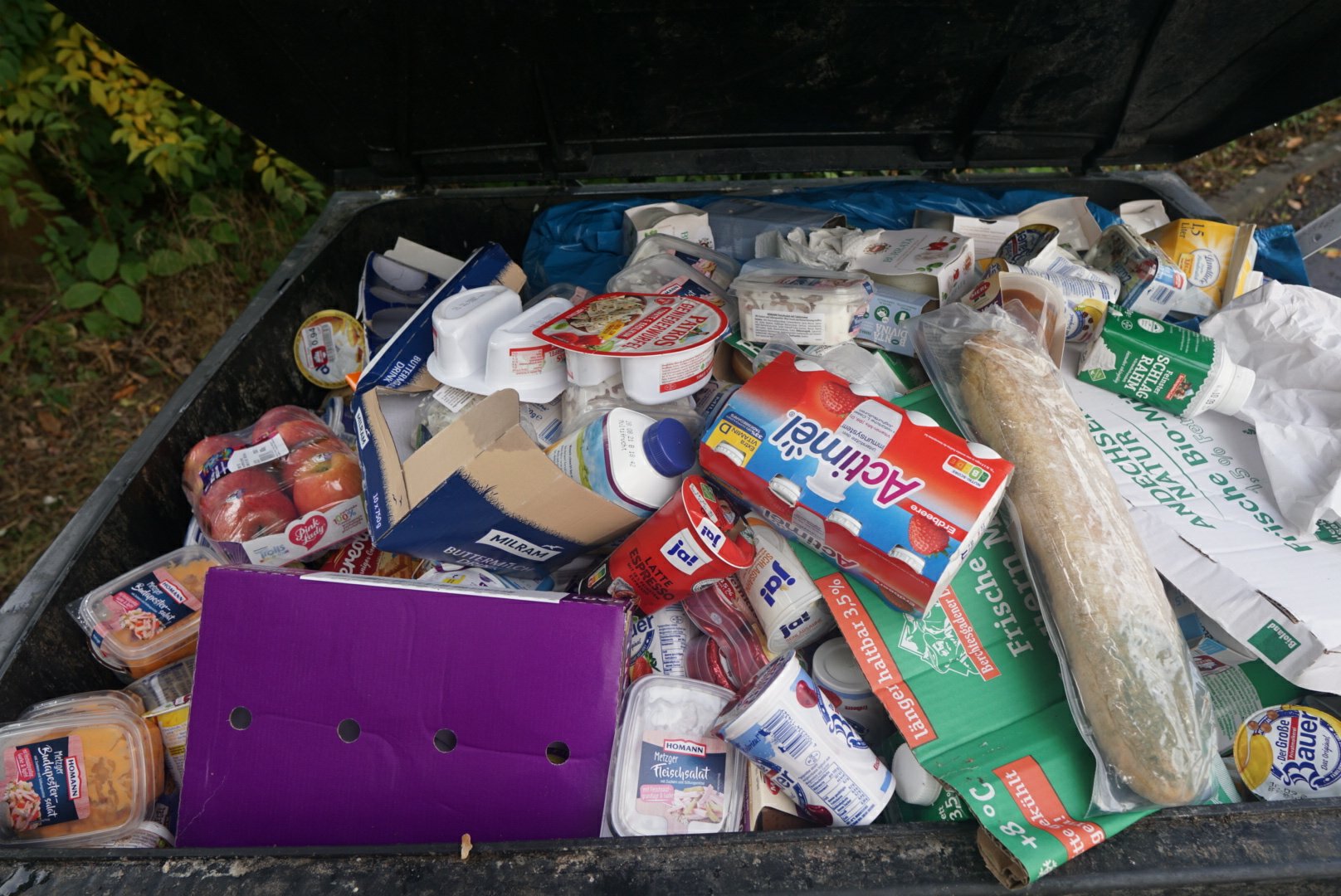
so much food! I only looked about 20cm deep, but it went much deeper… all nice and clean too 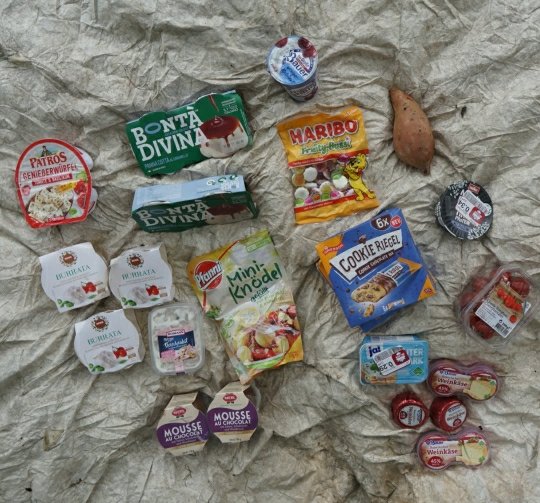
the small selection I took with me, one bag full
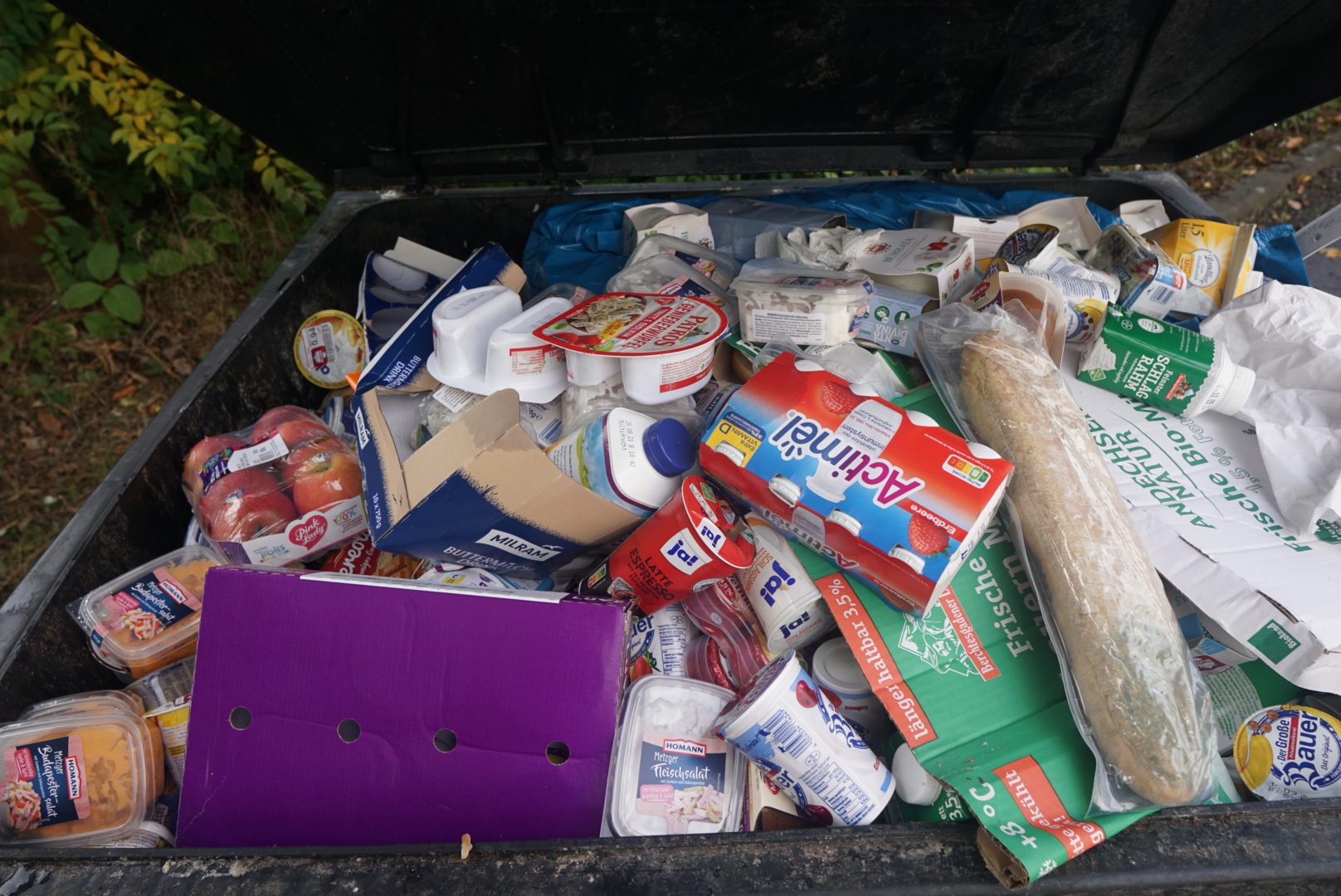
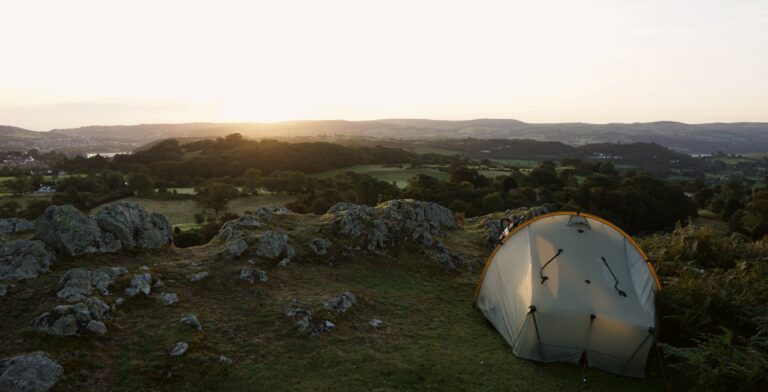
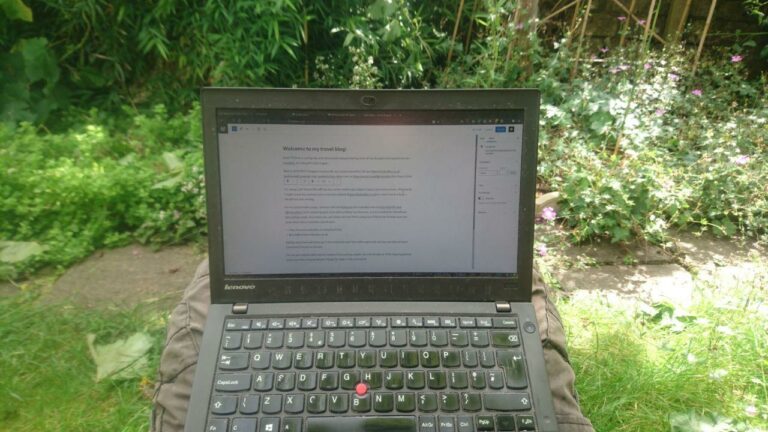
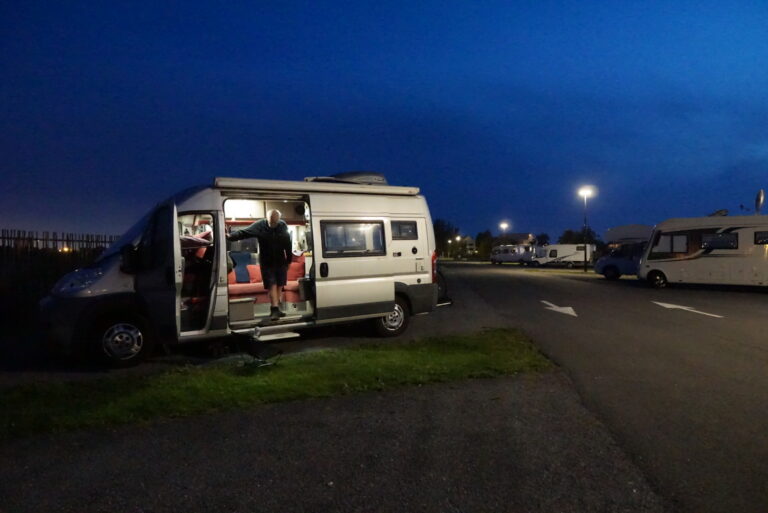
I was checking if there is something new from you, and just re-read the post and enjoyed it again.
I had quite similar thoughts about dumpster diving, that it’s not scalable and the practice felt elitist to me, not that it’s a bad thing, just an observation.
Only the practice of leaking the plates, used in my understanding as an expression of belonging to this avant-garde food saving group and reserved in my mind to people who went through Gulag, made me feel uneasy, seeing it reused, in a way – for fun.
In places where the system is imposed on people and not chosen by them, fighting the system may be socially perceived as a good thing, morally better then being part of the system. For example in communist Poland riding a bus without a ticket was an act of activism: political opposition and resistance to the system. But then, when the system changed people keep doing the same…
Growing up in such a country, my default is probably to question the rules and I quite often find myself not following them unless they make sense to me. I’ve noticed this was very different for my colleagues in the US, it seemed to me that they have a (somehow surprising for me) need to create more and more rules, many more then I would have made, and impose them on others (me having troubles fitting in them, maybe because of dyslexia or some other stories of different cultural backgrounds and gender minorities) and following them sometimes somehow blindly without understanding why they were there and without realizing they may not make sense any more or not for everyone.
Recalls me also the article about eXtinction Rebellion not being radical enough that you shared with me recently. I think it’s better to follow the rules though and question and modify them within the system, if only it allows to do so. The consequences of ignoring the rules are somehow unpredictable, I am scared of others, with unclear intentions, doing the same. What if they did some obscure things because I made it more acceptable to break the rules? I wish idealistically all systems were flexible enough so that everyone could live their own way _and_ within them.
Waiting for the next post. Cheers!
Where is the place where the people chose the system? To me it seems imposed on people everywhere, just with a variety of flavours.
I agree rules are tricky, sometimes the context they are applied in wasn’t imagined by those rules. Always need to have a way to question and update them. That’s not always in place.
A book I read recently on relationships has another approach to the use of rules. But it’s slipped out of my head for now, and it’s getting dark, cold, and it’s time to eat. So another time.